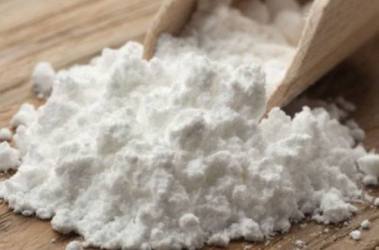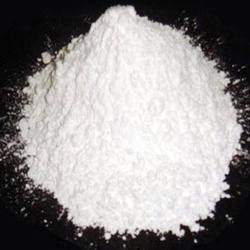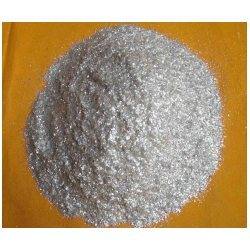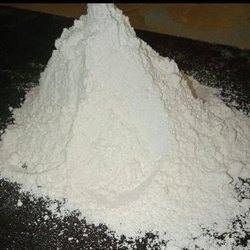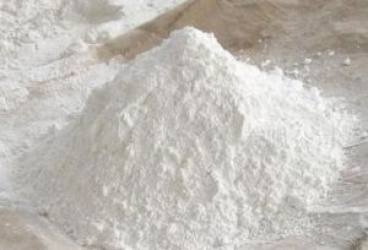Calcined Clay Powder is a common type of soil amendment used to manage water and soil conditioning. To form calcined clay, the clay must first be expanded by being subjected to high temperatures. Calcined clay powder is used on baseball fields to smooth the surface and fill in infield depressions caused by cleats. This helps to provide a true baseball bounce, which contributes to the overall safety of the field. Calcined clay also helps to fill in cleat marks. Calcined clay powder can absorb water, which helps to dry out a field after it has been rained on and helps to firm up the surface. Using an Atomic Absorption Spectrophotometer, Natural calcite powder was analyzed for dry matter, total ash, insoluble acid ash, major and trace minerals, and ruminal solubility of calcium carbonate, calcite, dolomite, limestone powder, and di-calcium phosphate powder as calcium sources.
Calcined clay powder has inherent qualities such as a duller shine, translucent appearance, and the ability to absorb oil. Calcination has the potential to further improve the oil-absorbing properties of the clay by somewhere in the neighborhood of 10 percent.
Calcite Powder Specifications
Calcined Clay Powder Manufacturers In India
We are prominent calcined clay powder manufacturers in India which can be milled into a more delicate product, almost to the point of becoming a powder. Clay that has been calcined and then finely ground, like Rapid Dry, can absorb water very quickly. In the aftermath of a significant downpour, it is frequently used to hastily soak up any standing water on the infield. We supply calcined mica powder for use in oil catalytic cracking, zeolite, detergents, cleaning agents, product modification, metal smelting, chemical synthesis, aerospace, and other applications as calcined mica powder suppliers. We make every effort to provide the best service to our customers as the top calcite powder manufacturers.
Calcined Clay Powder Price
The calcined clay powder price is mostly responsible for its high-performance factor, which in turn is largely responsible for its functioning in virtually all areas of the industry that is considered to be mainstream. Calcined clays present a potentially profitable opportunity to reduce the amount of clinker used in the production of cement. We provide high-grade calcite powder. This powder is used in various applications across many different industries. Chemical & Minerals is responsible for the production of high-grade natural calcite powder. The mineral-based fillers and chemicals, such as calcite powder, calcium carbonate, china clay powder, dolomite powder, hydrated lime, magnesium sulfate, calcite marble powder, and whiting powder.
We also manufacture aluminum wire, zinc wire, shot blasting machine, sand blasting machine, glass bead, quartz sand, steel grit, stainless steel shots, grit blasting machine, thermal spray wire, arc spray gun, and other abrasive products.
Vitrified clay and products made from calcined clay that has been finely ground are both examples of calcined clay. Calcined clay powder and vitrified clay are both types of fired clay, but calcined clay is heated to temperatures below 2000 degrees. Vitrified clay will be able to absorb and retain water for a more extended period than calcined clay. The managers of sports fields frequently mix clay that has been calcined and clay that has been vitrified. To maximize the amount of water absorption during wet periods, the ratio of calcined clay to vitrified clay will be higher. On the other hand, the percentage of vitrified clay to calcined clay will be higher during dry periods. In dry periods, vitrified clay retains moisture for longer than calcined clay, which means that there is more moisture on the infield surface when using vitrified clay.
The production of calcined clay powder, also known as metakaolin, requires heating a source of kaolinite to temperatures ranging from 650 to 750 degrees Celsius. Clay, paper sludge, and other sources of kaolin are heated to temperatures between 650 and 750 degrees Celsius to produce metakaolin. This material can be used in place of clinker in cement production.
Applications Of Calcined Clay Powder
- Calcined clay powder is readily available and has excellent reactivity in blended cement, calcined clays present a potentially profitable opportunity to reduce the amount of clinker used in the production of cement.
- On the other hand, a negative impact on workability is one of the primary drawbacks of utilizing calcined clay powder in the production of blended cement. This is one of the most significant drawbacks.
- This project investigates the use of grinding aids to control the particle size distribution of calcined clay and 500 mesh calcite powder that results from grinding those materials. After biting, it was found that calcined clays exhibit a strongly bimodal particle size distribution. This means that the clay minerals concentrate primarily on the finer particle population of the sample.
- The impurities, which mainly consisted of quartz sand and iron oxides, were removed using techniques that involved particle classification which increased the percentage of kaolinite present in the produced material.
